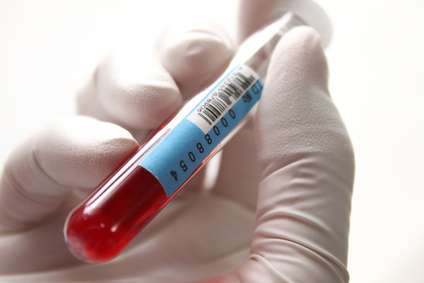Complex "cocktail" in white blood cells has regenerative effect

Hendrik Jan Ankersmit's research group at the Clinical Department of Thoracic Surgery of MedUni Vienna has successfully shown that irradiated white blood cells release substances that reduce the severity of the damage caused by a heart attack or stroke and in spinal injuries and have a positive effect upon tissue repair. However, up until now it wasn't known exactly which particular substances were responsible for these beneficial effects. This has now been discovered.
The study, which was conducted under the direction of Ankersmit and Michael Mildner (University Department of Dermatology of MedUni Vienna) as part of the doctoral thesis of Lucien Beer, an MDPhD student and assistant doctor at the University Department of Radiology and Nuclear Medicine of MedUni Vienna, has now been published in the journal Scientific Reports, a magazine from Nature Publishing Group.
The main finding of the study: "A purified exosome or protein fraction is responsible for these beneficial effects," explains Ankersmit. Apart from these protein complexes, lipids (fat-like substances) and other micro-particles are also involved. Ionising radiation stimulates the release of more of this cocktail and also enables us to regulate the quality of the substances it contains. In this way, white blood cells can act as "bioreactors" for producing these substances, known as APOSEC (a contraction of APOptotic SECretome). These bioreactors are easy to extract and the effort involved is comparable with that of conventional blood donation.
The researchers use human virus-inactivated APOSEC (Linz Blood Donation Centre, Prim. Gabriel), which the Austrian Food Safety Agency (AGES) has approved for use in clinical trials on humans and which is very similar to the test product approved by the AGES.[U1] It was shown in the large animal model (in collaboration with Mariann Gyöngyösi of the Cardiology Department of MedUni Vienna) that heart attack damage can be significantly reduced. Ankersmit: "These positive findings give us legitimate hope for the planned studies in the areas of human dermatology and cardiology."
More information: Lucian Beer et al. Analysis of the Secretome of Apoptotic Peripheral Blood Mononuclear Cells: Impact of Released Proteins and Exosomes for Tissue Regeneration, Scientific Reports (2015). DOI: 10.1038/srep16662



















